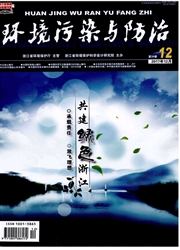

 中文摘要:
中文摘要:
生命周期评价理论与方法作为一种量化环境影响的工具,在诸多领域中得到了广泛的应用。在垃圾处理领域,生命周期评价最早在20世纪90年代得到应用。生命周期评价与城市生活垃圾处理的有效结合,将促进城市生活垃圾的减量化、资源化、无害化目标的实现。总结了生命周期评价理论与方法在城市生活垃圾处理中的应用现状。对国内不同城市生活垃圾处理方式环境影响因子进行比较分析,诸如全球变暖潜力、酸化潜力和富营养化潜力等因子。针对其目标范围定义、数据收集、评价方法的选择、结果解释及工艺改进等方面指出了目前研究的局限性和不足。并对未来城市生活垃圾处理生命周期评价的发展方向进行展望。
 英文摘要:
英文摘要:
In recent,the concept and method of the life cycle assessment(LCA)is widely used and related studies make a big progress in many fields to elucidate the environmental impacts.Within the field of municipal solid waste treatment,life cycle assessment was first applied in the 1990 s.Life cycle assessment applied on municipal solid waste treatment to realize the aim of reduction,reuse and recycling.The current application of life cycle assessment method in municipal solid waste treatment had been reviewed in this paper.Essential impact categories,such as global warming potential(GWP),acidificationpotential(AP)and Eutrophication(EP)were listed and compared to determine waste treatment hierarchy.The shortcomings on definition of the functional unit and the system boundaries,data collection,the selection of the impact assessment methodology,interpreting the results had been pointed out.And the future research direction of life cycle assessment in municipal solid was also analyzed.
 同期刊论文项目
同期刊论文项目
 同项目期刊论文
同项目期刊论文
 期刊信息
期刊信息
